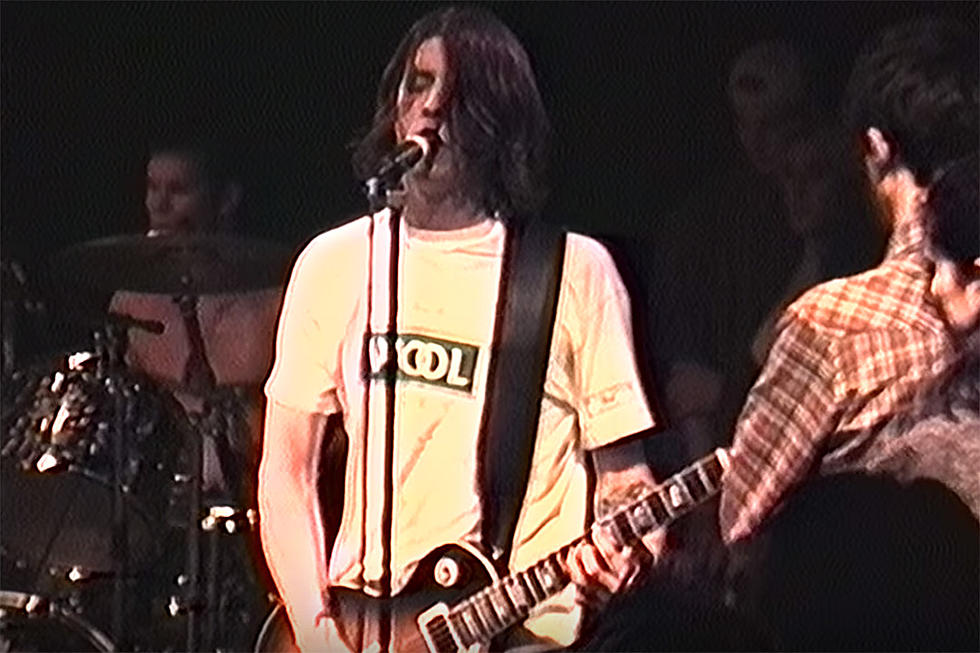
Thundercat, ‘Apocalypse’ – Album Review
Saying Thundercat plays bass guitar is a little like saying Stanley Kubrick used a camera. Stephen Brunner’s main mode of expression is his instrument, but with his solo music, his virtuoso tendencies are a backdrop to something greater.
Musicians defined by their instruments are few and far between in more indie-fied circles. There’s saxophonist Colin Stetson and guitar tapper extraordinaire Marnie Stern, but the two are very much exceptions. Thundercat plays bass, and the path that’s led him to his latest solo LP, ‘Apocalypse,’ his second for Flying Lotus’ Brainfeeder imprint, has taken him to realms as far and wide as SoCal thrash outfit Suicidal Tendencies and R&B lifer Erykah Badu.
In recent years Thundercat has cast his lot with Los Angeles beat maestro Flying Lotus, aka Stephen Ellison, putting his bass and vocal chops to use on the electronic producer’s visionary third LP, ‘Cosmogramma’ and subsequently releasing his Ellison-produced solo debut, ‘Golden Age of Apocalypse’ in 2011 on Brainfeeder. Brunner’s music is intrinsically linked to Flying Lotus’ vision of jazz and hip-hop, and the two don’t even bother hiding Ellison’s fingerprints. But Thundercat’s output has veered closer to pop and soul, with FlyLo’s electronic flourishes playing backup singer to Brunner’s whirlwind bass playing and gorgeous vocals.
.
The stunning thing about Thundercat’s solo material has been the vocals, and if anything, ‘Golden Age of the Apocalypse’ and its follow-up are vehicles for Brunner’s falsetto rather than his bass playing. Weirdly, Thundercat has become the Frank Ocean of the Brainfeeder stable. Brunner’s latest, ‘Apocalypse,’ picks up where its predecessor left off, treading the prog-y melodic realm that Thundercat has been patiently exploring since the ‘Cosmogramma’ cut ‘MmmHmm.' ‘Apocalypse’ only further realizes the beauty and songcraft hinted at on ‘Golden Age,’ and Thundercat seems to be doubling down on his pop tendencies.
‘Apocalypse’ is at its best on tracks like ‘Tenfold,’ ‘Heartbreak + Setbacks’ and ‘Evangelion,’ where Brunner’s vocals take point as bass plucks ripple in the background like wavering tapestries. Flying Lotus is a subtle but felt presence, searching out the minute dimensions of each track with touches of synthesizer and programming. ‘Heartbreak + Setbacks’ might be the record’s standout cut, with its bouncy chain-link rhythm and wall of bronzed synths. Brunner’s vocals dart out in front before melting into a chorus of heavenly “ooh”s.
As compositionally complex as Thundercat’s music can be, Brunner approaches ‘Apocalypse’ with zero pretense. There’s something incredibly grounded about the whole affair. The record is reflective without Brunner digging for tortured depths, yet it’s breezy without hiding from everyday darkness. One of the tracks is named for the mecha anime series 'Neon Genesis Evangelion' and another for the sci-fi cult movie 'Tron,' but there are songs on which Brunner covers topics like death and heartbreak with matter-of-fact optimism.
Thundercat’s sensibility has always somehow felt more Mega Man than Jaco Pastorius, and the dude’s hanging-out-in-the-basement, tripping-in-the-woods outlook corroborates that. After all, he did name himself after a 1980s cartoon. But the trick is, you sort of understand why all the references are meaningful within the context of the album’s themes of love, friendship and loss.
More From Diffuser.fm









